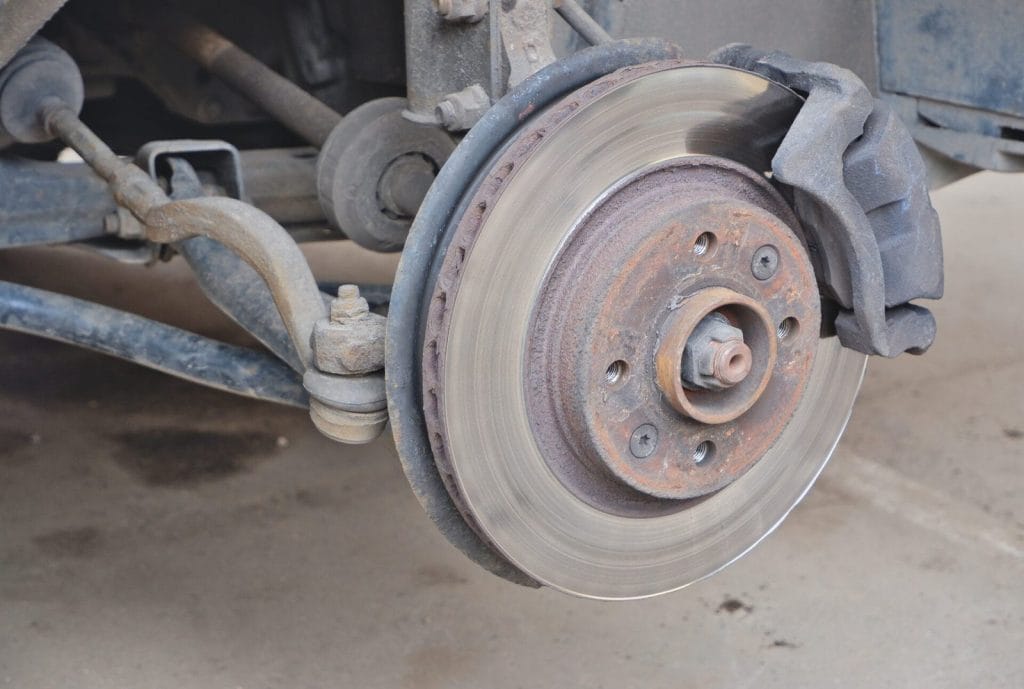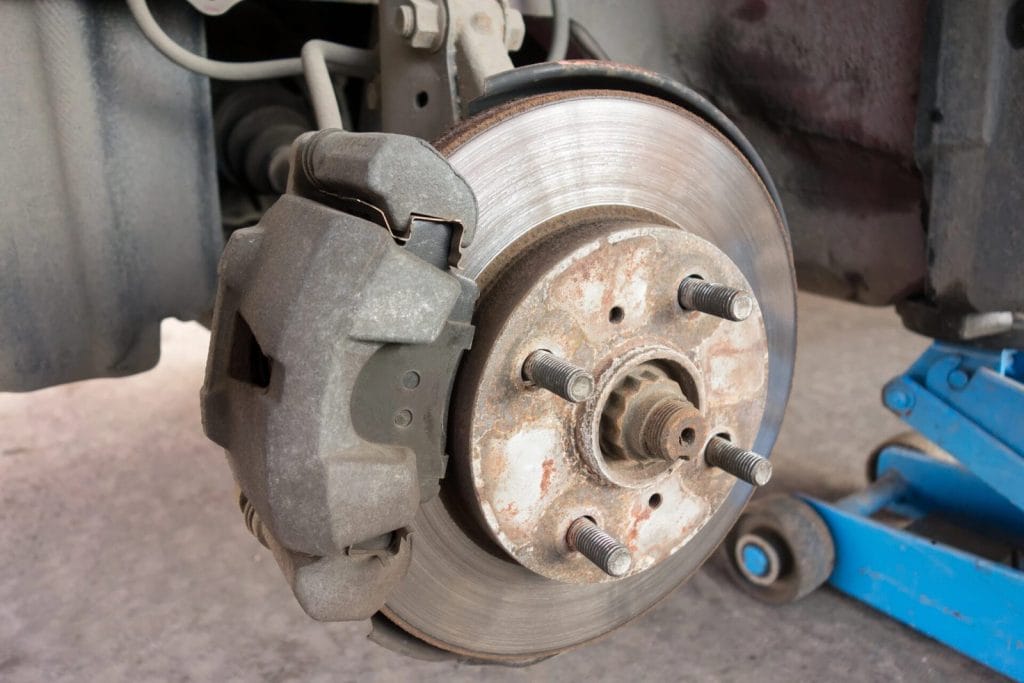
Trailer Brake Repair
Ensure your trailer’s safety and performance with our specialized trailer brake repair services. Our experienced technicians are well-versed in diagnosing and addressing brake issues of all kinds. Whether it’s worn brake pads, faulty brake lines, or any other brake-related problem, we have the expertise to provide reliable solutions. Trust us to keep your trailer’s braking system in top condition, giving you peace of mind while towing. Check our Trailer Repair Services
Introduction: Owning a trailer comes with the responsibility of maintaining its various components, including the brakes. Trailer brake repair is crucial to ensure the safe operation of your trailer and the vehicle towing it. In this article, we will discuss how to perform brake inspection, when to replace trailer brakes, how to replace electric trailer brakes, understanding drum brakes, and the different types of trailer brakes available.
How to Perform Brake Inspection on a Trailer?
Regular brake inspection is essential to identify any issues and ensure your trailer’s brakes are in optimal condition. Here’s a step-by-step guide to help you inspect your trailer’s brakes:
Step-by-step guide for inspecting trailer brakes
To inspect your trailer brakes, start by securely parking the trailer on level ground. Remove the wheel from each brake assembly to access the braking components. Check for any signs of wear or damage on the brake pads, drums, or shoes. Inspect the brake wiring for any loose connections or frayed wires. Finally, test the brakes by applying them while towing to ensure they engage smoothly.
Common signs of brake issues to look out for
There are several signs that indicate your trailer brakes may have issues. These include squeaking or grinding noises while braking, reduced braking performance, uneven tire wear, and a brake warning light on your tow vehicle’s dashboard. If you notice any of these signs, it’s important to address the brake issues promptly.
Importance of regular brake maintenance
Regular brake maintenance is crucial to not only ensure your trailer’s safety but also prolong the lifespan of the braking system. Proper maintenance will help prevent costly repairs and potential accidents on the road. Regularly inspecting, cleaning, and lubricating the brakes will keep them in optimal working condition.
When Should You Replace Trailer Brakes?
Knowing when to replace your trailer brakes is essential for safe towing. Here are some warning signs that indicate it’s time to replace your trailer brakes:
Warning signs that it’s time to replace trailer brakes
If you experience decreased braking power, a soft brake pedal, or the brakes feel spongy, it’s time to replace them. Other warning signs include excessive wear on the brake pads or shoes, visible damage to the brake components, or if the brake system fails to engage properly.
Different types of trailer brakes and their lifespan
Trailers can be equipped with different types of brakes, such as electric, hydraulic, or surge brakes. Each type has its own lifespan, with electric and hydraulic brakes typically lasting longer. Electric brakes can last up to 50,000 miles, while hydraulic brakes can last between 20,000 to 40,000 miles depending on usage and maintenance.
Tips for choosing the right type of brake system
When choosing a brake system for your trailer, consider factors such as the weight of your trailer, the type of tow vehicle, and your specific towing needs. Electric brakes are excellent for heavy loads and provide better control, while surge brakes are suitable for lighter loads and do not require a brake controller.

How to Replace Electric Trailer Brakes?
If you’re experiencing issues with your electric trailer brakes, you may need to replace them. Here’s a step-by-step guide on how to replace electric trailer brakes:
Step-by-step instructions for replacing electric trailer brakes
Start by securing the trailer and disconnecting the electrical wires from the old brake assembly. Remove the retaining hardware and slide out the old brake assembly. Install the new brake assembly, ensuring proper alignment. Connect the electrical wires to the new brake assembly and adjust the brake shoes for optimal performance. Test the brakes after installation to ensure they engage and release smoothly.
Tools and equipment needed for the replacement
For replacing electric trailer brakes, you’ll need basic hand tools such as wrenches, pliers, and a socket set. Additionally, you’ll need a brake adjustment tool, brake cleaner, and lubricant for optimal brake performance.
Common mistakes to avoid during brake replacement
When replacing electric trailer brakes, it’s important to avoid common mistakes such as incorrect alignment of the brake assembly, improper connection of the electrical wires, and neglecting proper brake adjustment. Ensure you follow the manufacturer’s instructions and consult professional help if needed.
Understanding Drum Brakes on Trailers
Drum brakes are a common type of braking system used in trailers. Understanding how they work and how to maintain them is crucial for safe towing. Here’s an overview of drum brakes on trailers:
An overview of how drum brakes work
Drum brakes consist of brake shoes, a brake drum, and various springs and levers. When the brake pedal is pressed, the hydraulic or mechanical system forces the brake shoes against the inner surface of the brake drum, creating friction and slowing down the trailer.

Common issues with drum brakes and how to fix them
Some common issues with drum brakes include brake fading, overheating, and stuck brake shoes. Brake fading occurs when the brakes lose their effectiveness due to overheating, and it can be resolved by letting the brakes cool down. Overheating can be prevented by properly adjusting the brakes and avoiding excessive braking. Stuck brake shoes can be fixed by inspecting and lubricating the brake components regularly.
Tips for maintaining and prolonging drum brake lifespan
To prolong the lifespan of drum brakes, regular maintenance is essential. This includes adjusting the brakes according to the manufacturer’s specifications, cleaning the brake components, and regularly inspecting and replacing worn-out brake shoes or drums.
Types of Trailer Brakes and Which One Do You Need?
There are different types of trailer brakes available, each with its own advantages and considerations. Understanding the options will help you choose the right brake system for your specific towing needs. Here are the different types of trailer brakes explained:
Different types of trailer brakes explained
The main types of trailer brakes include electric, hydraulic, and surge brakes. Electric brakes are operated by an electric brake controller and provide precise braking control. Hydraulic brakes use hydraulic fluid and a master cylinder to engage the brakes. Surge brakes use the trailer’s momentum to activate the brakes whenever the tow vehicle slows down.
Factors to consider when choosing trailer brakes
When choosing trailer brakes, consider factors such as the weight of your trailer, the type of tow vehicle, and the local regulations. Electric brakes are suitable for heavier loads and provide excellent braking control, while hydraulic brakes are ideal for marine trailers and heavy loads. Surge brakes are commonly used in boat trailers.

Pros and cons of electric, hydraulic, and surge brakes
Electric brakes offer precise braking control and are suitable for various load capacities. However, they require an electric brake controller. Hydraulic brakes provide reliable braking performance and require minimal adjustment. Surge brakes do not require a brake controller but may be less effective than electric or hydraulic brakes in certain situations.

Oregon
Portland, Beaverton, Gresham, Hillsboro, Corbett, Cornelius, Fairview, Forest Grove, Gladstone, Happy Valley, King City, Lake Oswego, Milwaukie, Oregon City, Sherwood, Tigard, Troutdale, Tualatin, West Linn, Wilsonville, Wood Village, Aloha, Beavercreek, Boring, Cedar Mill, Clackamas, Damascus, Dunthorpe, Garden Home, Raleigh Hills, and West Slope

Washington
Vancouver, Battle Ground, Camas, Washougal, Ridgefield, La Center, Yacolt, Hazel Dell, Minnehaha, Salmon Creek, Walnut Grove, Orchards